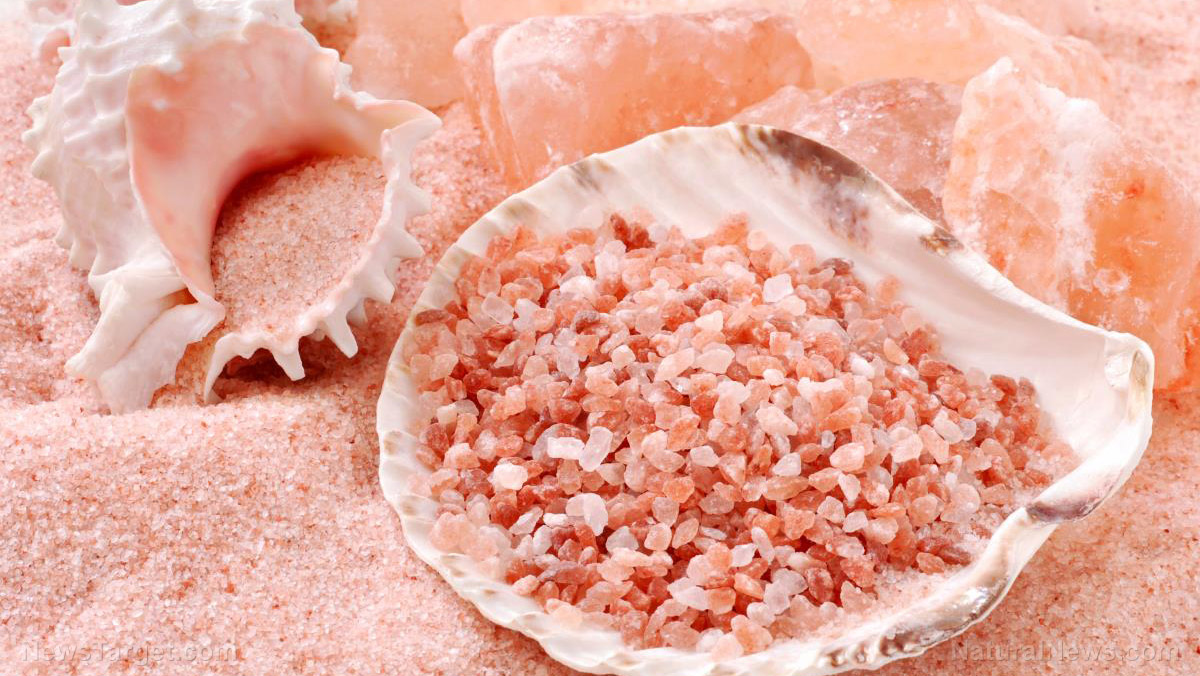Common ingredient used in baked goods and processed foods linked to LOWER sperm counts
03/27/2024 / By Zoey Sky

One ingredient often used to make various baked goods and processed foods may cause DNA damage, oxidative stress and decreased testosterone levels and sperm counts in male mammals: sodium aluminum phosphate.
Respected author and journalist Naomi Wolf discussed in an article the widespread use of sodium aluminum phosphate on common food products such as baking powders, pancake mixes, frozen pizzas and processed cheeses.
She also discussed several peer-reviewed studies that were linked to broader trends in reproductive health and masculinity, warning that sodium aluminum phosphate affected blood testosterone linked to libido, and sperm counts associated with fertility. (Related: Studies show ULTRA-PROCESSED FOODS put millions of people in the U.K. at risk of cardiovascular disease.)
Sodium aluminum phosphate is an additive often used in food products as an emulsifying agent, leavening acid and stabilizer. It is a white, odorless solid that is slightly soluble in water.
Sodium aluminum phosphate is used to make a variety of commercially baked goods like biscuits, cakes and muffins. It is also used for baking powders and self-rising flours and in processed cheeses to improve their texture and melting properties.
Sodium aluminum phosphate is also used in school lunches and fast food items, like hamburger buns and pizza dough, said Wolf.
Wolf warned that people are often exposed to sodium aluminum phosphate, especially if they consume food products like processed baked goods like burgers and frozen pizza.
She also called for sodium aluminum phosphate to be “taken out of our food supply.”
Sodium aluminum phosphate is “hazardous”
Chemicals company Innophos sells sodium aluminum phosphate under the brand name Actif-8. The product’s brand safety data sheet has classified sodium aluminum phosphate as a “hazardous substance or preparation” that can cause serious eye damage and skin and respiratory irritation.
The safety data sheet also warned that users must avoid breathing dust, fumes, gas, mist, vapors, or sodium aluminum phosphate spray and to wash “thoroughly after handling.”
The Innophos safety data sheet also advised users to wear protective gloves and eye or face protection when handling sodium aluminum phosphate.
If inhaled, Innophos warned that sodium aluminum phosphate “may cause upper respiratory tract irritation.” Additionally, ingesting large quantities of the toxic additive may cause negative side effects such as abdominal cramps, diarrhea, nausea and vomiting.
However, despite these warnings, Wolf explained that sodium aluminum phosphate is still often used to make various food products without safety precautions for consumers.
“People who handle this product have to suit up and ventilate and avoid eye and skin and lung irritation, yet it is also used to make food that children are eating, warned Wolf.
She also discussed a summary of peer-reviewed scientific literature on aluminum reproductive toxicity by Robert A. Yokel, published in the journal Critical Reviews in Toxicology. According to the review, aluminum exposure may cause “adverse reproductive outcomes in male and female mammals.”
Yokel’s analysis also suggested that “male reproductive endpoints were significantly affected after exposure to lower levels of [aluminum] than females.” Increased aluminum intake resulted in higher concentrations of the metal in the fetus, placenta and testes in both male and female mice and rats.
The proposed mechanism for aluminum’s reproductive toxicity was linked to “oxidative stress as the initiating event, followed by increased DNA damage, impaired spermatogenesis and reduced testosterone levels and sperm count.”
Christopher Exley, a researcher on aluminum toxicity and the author of “Imagine You Are An Aluminum Atom: Discussions With Mr. Aluminum,” praised Wolf’s efforts to bring the toxic effects of sodium aluminum phosphate to a wider audience.
Exley cautioned that humanity is now “in the [aluminum]” age and that it is becoming harder to avoid sodium aluminum phosphate exposure. He also warned that the additive “has a significant impact upon human health — including the male reproductive system.”
Exley, who is a leading expert on aluminum toxicity, has studied the effects of aluminum exposure on human health with his team at Keele University in the United Kingdom. Exley and his research team have also looked into the additive’s potential link to autism.
In a 2014 study published in the journal Reproductive Toxicology, Exley and his fellow researchers provided “unequivocal evidence of high concentrations of aluminum in human semen.” The research team also warned about “concerning implications for spermatogenesis and sperm count.”
In 2017, Exley published research that showed how two months of aluminum exposure at human dietary levels negatively affected spermatogenesis and sperm quality in rats.
Ingesting aluminum linked to “observed declines in masculinity”
According to Wolf, the studied effects of ingesting aluminum correspond to observed declines in masculinity, muscle mass and libido among younger men.
She also warned that some environmental factors, like aluminum exposure, could help explain increased rates of depression, disinterest in sex and weight gain among men. Wolf also warned that sodium aluminum phosphate may cause brain inflammation, dementia and Parkinson’s disease.
She also said that other potential sources of aluminum exposure include antacids, cookware, vaccines and geoengineering projects that “spray aluminum particles into the atmosphere.”
Wolf was “horrified” to find proof of a “chemical war on men” that is targeting traditional masculinity, along with “the ability to strengthen a physical relationship” and in turn a family, or to fight in a “hot war.”
Wolf also criticized the Food and Drug Administration’s oversight of food additives like sodium aluminum phosphate, particularly the agency’s “extraordinarily corrupt and negligent” handling of Pfizer’s Wuhan coronavirus (COVID-19) vaccine trials.
According to Wolf, the FDA has not recalled lead-contaminated cinnamon applesauce products, instead claiming that manufacturers and distributors must make sure that their products are not contaminated with harmful chemicals.
She advised consumers to have a more proactive approach to avoid aluminum-containing food additives. Wolf said that shoppers should always check ingredient labels and remove products with aluminum from their pantries.
Go to Ingredients.news for similar stories about other dangerous food additives.
Watch the video below to learn how Organic Maca Root Powder can help support optimal reproductive health.
This video is from the Health Ranger Store channel on Brighteon.com.
More related stories:
Study warns of possible reproductive crisis as sperm counts drop worldwide.
PUREBLOODS as sperm donors: Demand for sperm from unvaccinated donors is rising sharply.
Study finds popular pesticide could be behind rise in erectile dysfunction among young men.
Human sperm concentrations have fallen by 50% over past 50 years, pesticides partially to blame.
Sources include:
Innophos.com [PDF]
Submit a correction >>
Tagged Under:
baked goods, Dangerous, Fertility, food additives, health science, impotent, Infertility, investigations, men's health, poisons, reproduction, reproductive crisis, reproductive health, research, sodium aluminum phosphate, sperm, sperm count, toxic chemicals, toxic foods, toxic ingredients, toxins
This article may contain statements that reflect the opinion of the author
RECENT NEWS & ARTICLES
COPYRIGHT © 2017 REAL INVESTIGATIONS NEWS





















